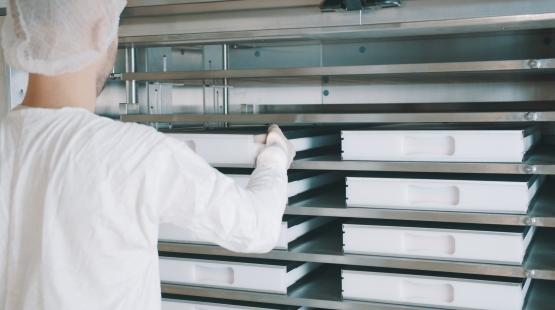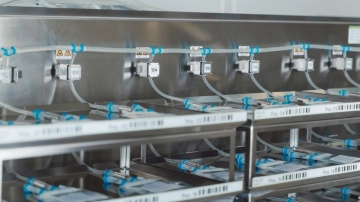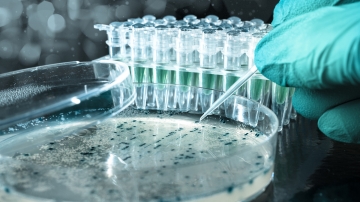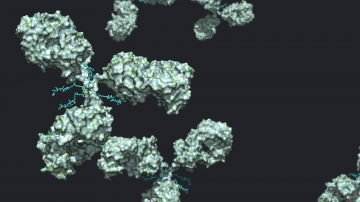Transport & Storage of Antibody Drug Conjugates (ADCs)
Table of contents
ShowADCs can be described as a new rising star among biopharmaceutics. They are able to specifically target and destroy cancer cells very effectively. Their levels of toxicity can vary depending on several factors, including their specific design and the potency of the cytotoxic drug. This is why safe handling in between facilities is such an important issue and must not be taken lightly.
Here, single-use technology - a modular, but most importantly, a closed, sterile system - can offer viable solutions. This is particularly interesting given the growing popularity of antibody-drug conjugates, because: The right solution - one that is flexible and adaptable - can help speed up processes and streamline operations.
Importance of safe storage and shipping of ADCs
With ADC manufacturing being such a complex field, most producers or CMOs are highly specialized, be it in the development and production of linkers or the final conjugation process.
As a result, potentially toxic substances are often handled through multiple stakeholder and different manufacturers, leading to supply chain challenges related to
- safe handling,
- shipping, and
- interim storage.
Shipping ADCs safely poses a significant challenge. These valuable compounds must be shielded from temperature variations during freezing storage and safeguarded against leaks at all times. Any loss of product can lead to substantial expenses and pose a risk to staff who may be exposed to hazardous substances.
Given the cytotoxicity of the substances they are handling, many CDMOs or CMOs that offer conjugation services rely on single-use technologies for processing and logistics purposes and continue to push for advances in that area. According to a report by Research and Markets, the single-use assemblies market is expected to grow from USD 10.2 billion in 2022 to almost USD 40 billion in 2023.1
How to store Antibody Drug Conjugates?
Antibody drug conjugates require proper storage to maintain their stability and efficacy. They should be stored at ultra-cold temperatures ranging from -80°C to -20°C, depending on the specific ADC formulation.
It's important to prevent temperature fluctuations during storage and transportation, which can damage the ADCs and affect their potency.
Proper labeling and documentation are also essential to ensure the correct storage conditions are maintained throughout the supply chain. Regular monitoring of the storage conditions and appropriate handling during transport are crucial to prevent any product loss or exposure to toxic substances.
Single Use Support’s RoSS.ULTF is a ultra-cold storage freezer for antibody drug conjugates (ADCs) that offers a reliable temperature control, which provides precise air temperature uniformity of 1.5°C and wide-ranging set points. This feature ensures that ADCs are stored at optimal temperatures to maintain their stability and efficacy.
It can be installed without requiring changes to the existing infrastructure, making it a convenient and practical option for facilities of all sizes. And, RoSS.ULTF has a back-up plan for emergencies, with digital alarming management and long-term temperature holding in case of system failure. This ensures that the ADCs remain safe and effective even in unexpected situations.
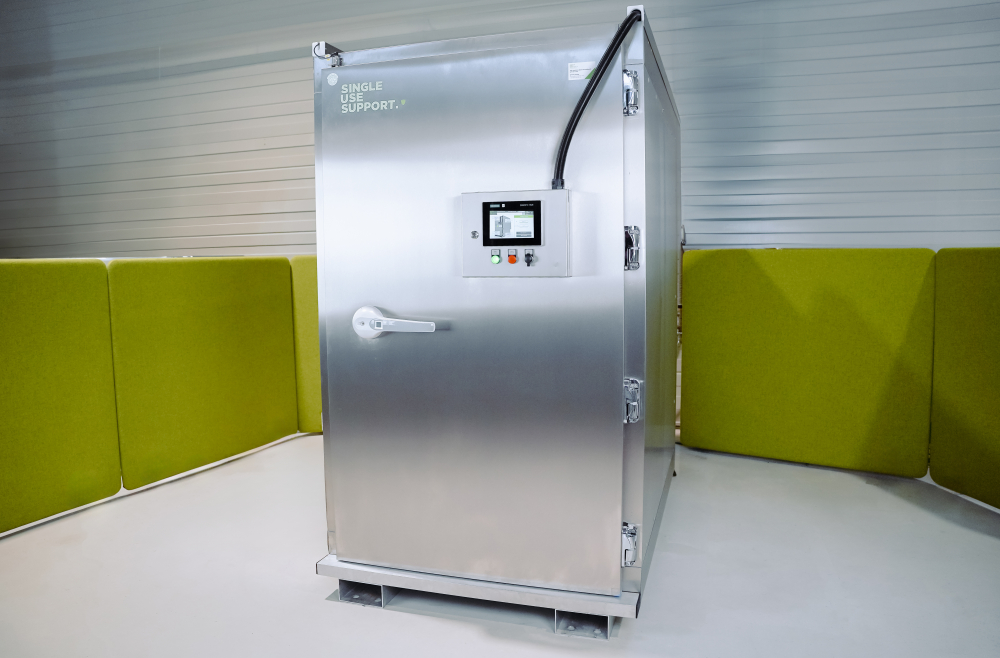
How to safely ship Antibody Drug Conjugates?
As is the case with any API, not only the sensitive but also the valuable - and toxic - nature of ADCs calls for extreme caution during handling. Any breakage of sample containers holding ADCs or their cytotoxic components could pose a serious threat to personnel safety.
Secondary Packaging: This is where robust protective containers such as Single Use Support’s RoSS® shell come in handy. Made up of a robust outer sleeve of stainless-steel and a PE frame and an adaptive inner layer of 3D foam, they provide a closed system for the safe transport and storage of high-value and potentially harmful substances.
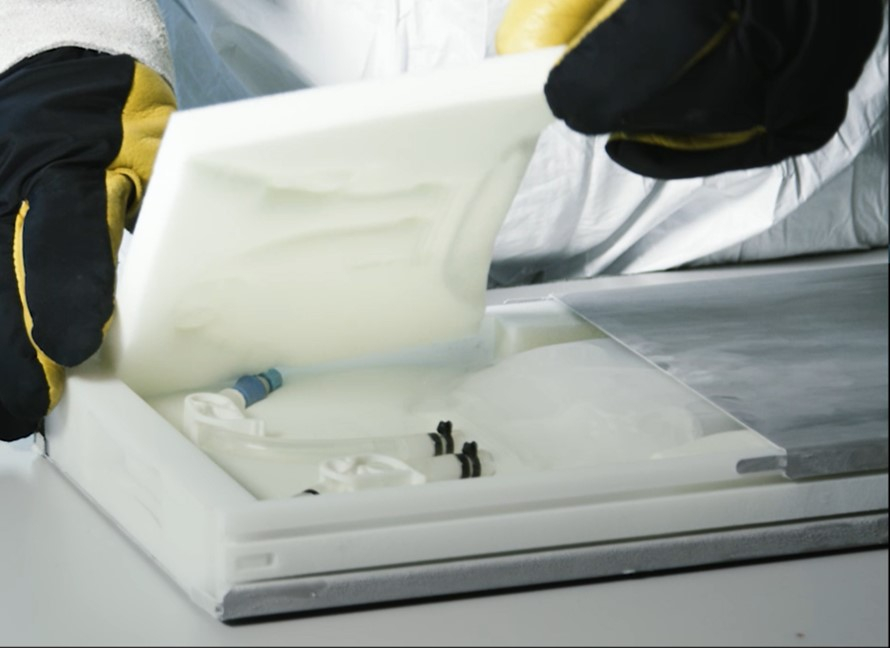
Tertiary Packaging: RoSS.SHIP® is a robust container for cold chain shipping of up to one week. Multiple RoSS shells in different sizes can be loaded into RoSS.SHIP that remain frozen constantly thanks to dry ice or passive cooling. To make the most of available space, the pallet-sized containers are compact and stackable.
Thus leading to reduced need for space. In addition, they can be equipped with an optional add-on for smart tracking & tracing that will monitor the container and its contents 24/7.
Read more about primary, secondary & tertiary packaging solutions.
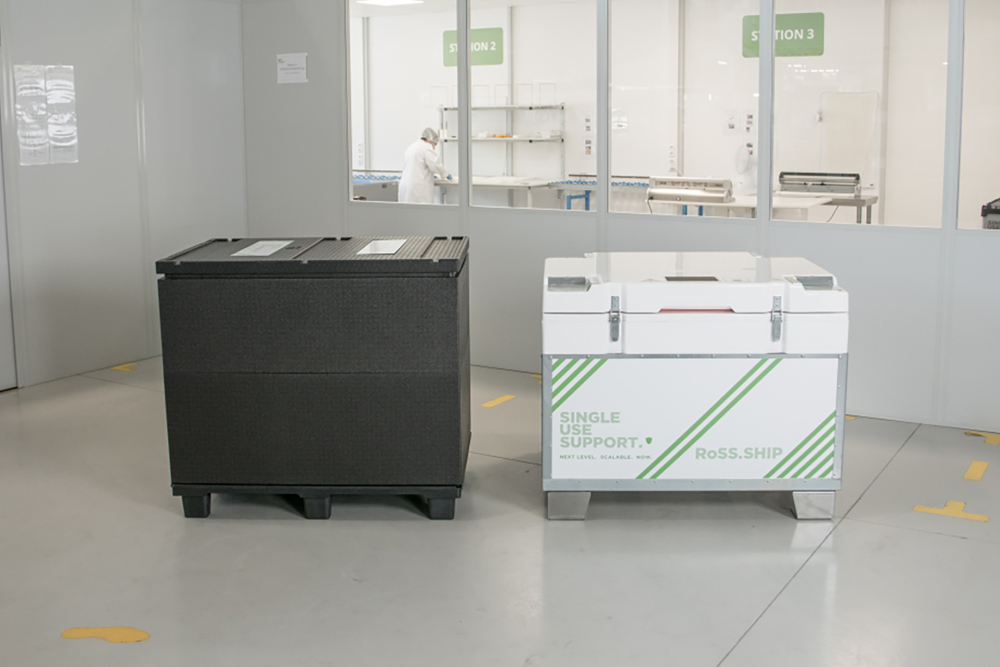
ADC manufacturing with single-use technology
Because it is such common practice for antibody, HPAPI production and final conjugation to be handled at different sites, reliable, safe and secure logistics are not only necessary but a vital part of the process. It is this very step that provides ample room for optimization, both in terms of storage and shipping.
Single-use components are ideally suited to construct closed-system supply chain solutions that can be easily adapted and integrated. At the same time, they make do with the need for sterilization and elaborate cleaning processes, concurrently leading to an increase in productivity.
It is hardly surprising that the biopharmaceutical industry is increasingly falling back on single-use technologies. Apart from offering a number of benefits such as flexibility, improved efficiency and product quality, bioconjugates manufacturing with single-use technology comes with reduced environmental impact and costs. And costs are a sensitive topic in a field where the value of a single drug dose is still exorbitantly high.
Recommended articles
- Single-use Assemblies Market Size, Share & Trends Analysis Report by Product (Bag Assemblies, Filtration Assemblies), by Application (Filtration, Storage), by Solution (Customized, Standard), and Segment Forecasts, 2022-2030, https://www.researchandmarkets.com/reports/5665142/single-use-assemblies-market-size-share-and?utm_source=GNOM&utm_medium=PressRelease&utm_code=k9q7zs&utm_campaign=1787624+-+Global+Single-use+Assemblies+Market+Report+2022+to+2030%3a+Widespread+Adoption+Of+Single+Use+Technology+By+CMOS+Presents+Opportunities&utm_exec=jamu273prd, Published 01.09.2022


